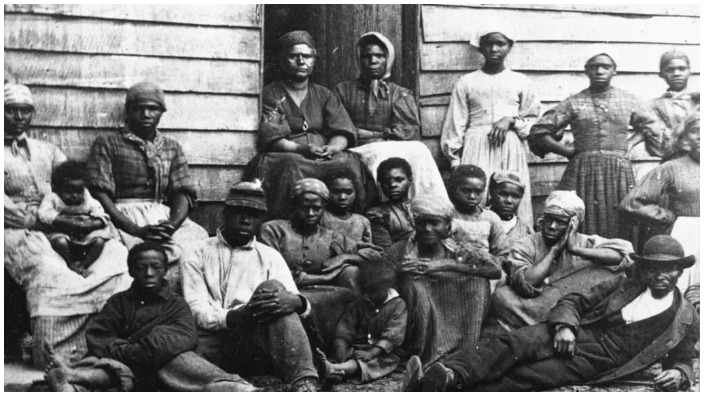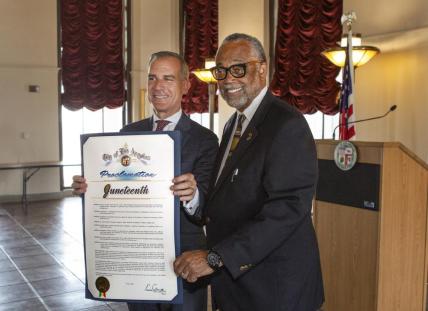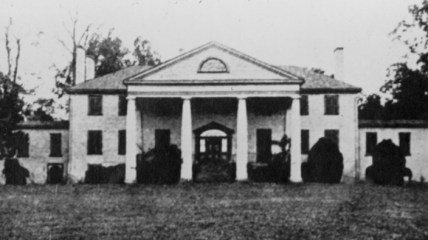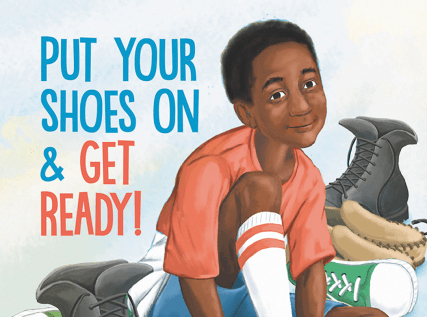‘Born in Slavery’ shares stories of formerly enslaved people. We’ve included the link to read their words ahead of Juneteenth
"Born in Slavery: Slave Narratives from the Federal Writers' Project, 1936-1938" contains more than 2,000 first-person accounts and 500 photographs.
More than 2,000 first-person accounts of slavery in America have been digitized and compiled for a collection that is now available online on the Library of Congress website.
“Born in Slavery: Slave Narratives from the Federal Writers’ Project, 1936-1938” also contains 500 black-and-white photographs of people who had been enslaved. The narratives were made possible by the Works Progress Administration, which paid people to interview formerly enslaved people in the 1930s. Over 2,300 Depression-era Blacks agreed to share their stories, now available to read ahead of the Juneteenth holiday.

As reported by the Arkansas Democrat Gazette, Lane College president Logan Hampton recently unpacked this collection during a remote symposium on “African Americans and Religion in Arkansas.” He highlighted some of the testimonies during his presentation, titled “Faith of Our Foreparents,” which examined the role of the church in the Black community through the years.
“Faith and church were regular parts of life for our … ancestors,” Hampton said.
He quoted the formerly enslaved Aunt Adeline of Fayetteville, who spent a great deal of her life along the stagecoach route in Northwest Arkansas.
“We didn’t have many toys; maybe a doll made of a corn cob, with a dress made from scraps and a head made from a roll of scraps. We were playing church. Miss Fannie was the preacher, and I was the audience. We were singing ‘Jesus, My All, to Heaven Is Gone.’ When we were half way through with our song, we discovered that the passengers from the stage coach had stopped to listen. We were so frightened at our audience that we both ran. But we were coaxed to come back for a dime and sing our song over,” Aunt Adeline recalled in her interview, per the report.
Hampton also shared the memories of Lucretia Alexander of Little Rock, who noted how religion and the Bible were weaponized by the enslaver.
“They would make the slaves work ’til twelve o’clock on Sunday,” she said, “and then they would let them go to church.”
“The n***** didn’t go to the church building; the preacher came and preached to them in their quarters. He’d just say, ‘Serve your masters. Don’t steal your master’s turkey. Don’t steal your master’s chickens. Don’t steal your master’s hawgs. Don’t steal your master’s meat. Do whatsoever your master tells you to do.’ Same old thing all the time,” she told the interviewer.
Alexander noted that slaves would often gather out of the watchful eye of their masters to discuss their own interpretation of the gospel.
“My father would have church in dwelling houses, and they had to whisper,” she shared. “Sometimes they would have church at his house. That would be when they would want a real meetin’ with some real preachin’. It would have to be durin’ the weeknights.”
“You couldn’t tell the difference between Baptists and Methodists then. They was all Christians,” Alexander continued. “I never saw them turn nobody down at the Communion. … They used to sing their songs in a whisper and pray in a whisper. That was a prayer-meeting from house to house once or twice — once or twice a week.”
Per the Library of Congress website, the edited narratives in the “Born in Slavery” collection “are arranged alphabetically by the state in which the interviews took place and thereunder by the surname of the informant.”
TheGrio is FREE on your TV via Apple TV, Amazon Fire, Roku, and Android TV. Please download theGrio mobile apps today!
More About:Black History Month












